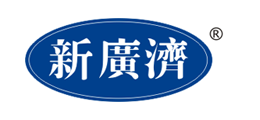Think about the future, prepare for the next 10 years in the construction machinery industry will
Release Time : 2019-03-12 View Count : 262 次This year, China's construction machinery industry is still very popular. After a wave of years of market downturn, the fortunate survivors of the enterprises have regrouped to welcome a new round of growth. The industry seems to have returned to 10 years ago overnight. Promotions, raffles, spare parts, oil products, retail sales and occupancy are all so familiar that people seem to have completely forgotten the pain they once suffered and are busy happily in their hard work. People without foresight must have immediate worries. In 10 years'time, what will be the pattern of China's construction machinery industry?
Peter Drucker, a master of management, said, "Strategy is not to study what we will do in the future, but what we will do today to have a future." Only enterprises with strategic thinking will be able to lay out for tomorrow, which also ensures that they can win in the future competition. Huawei began to develop chips more than 10 years ago, and six years ago started to develop its own operating system to prepare a "spare tire" for itself, so as to ensure that they will not be as lethal as ZTE in the face of "sanctions" in the United States. What preparations have we made for ourselves in the future?
Unfortunately, the booming market has left many managers of construction machinery enterprises blind and unable to see Mount Tai. They seldom think about the future and prepare for the future. What will happen to the construction machinery industry in 10 years? Let me make a bold prediction.
Product
Ten years later, the biggest change in the industry will undoubtedly be the conversion of diesel power. Diesel engine-driven equipment will be completely replaced by electric drive. The Netherlands and Norway have announced that all traditional fuel vehicles will be banned in 2025, Germany, India and the United States (California) will be banned in 2030, and the Ministry of Industry and Information Technology of China has officially launched the relevant research on the exit schedule of fuel vehicles, while the more polluted diesel-driven construction machinery will be withdrawn from the historical stage. Is there any doubt?
This change not only changes the driving mode of the equipment, but also the management mode and service concept. Electric equipment is absolutely matched with the Internet, 5G and AI. This change makes the hardware of the equipment extremely simple. Simple mechanical structure even overturns the original maintenance and maintenance mode, and the air filtration and filter systems which guarantee the normal operation of diesel engine are missing and only maintained. Some hydraulic systems have been retained, and some hydraulic pilot controls have been replaced by electrification.
The stringent environmental requirements make diesel engine completely withdraw from the historical stage. The core components are no longer cylinders, pumps, valves and diesel engines, but batteries. The design has become a modular structure. A large number of parts suppliers in the market make it possible for agents to assemble excavators or loaders according to the needs of users, which makes it possible for users to dream of "tailoring" to their needs.
Place
Although there is no Big Mac network platform in the construction machinery market, many people even think that the Internet platform is not suitable for this industry. The author is very convinced that in 10 years, some Internet platforms will rise rapidly with the help of capital. They will cover the whole country, multi-brand, integration, integration of the whole machine, service, parts, leasing, second-hand equipment, and users. Backpackers, service providers, accessories stores, renters, used car dealers, agents and even manufacturers are closely linked to improve the efficiency of customer service and completely change the marketing channels and service modes of previous industries.
In the past, we called host factories and agents as "elephants", and those small enterprises that depend on the quantity of equipment to survive, such as accessories stores, repair factories, backpackers, used car dealers, etc., as "ants", and now the very weak Internet platform is also a kind of "ants". Ten years later, with the support of capital, "ants" may grow faster than everyone expected, and some Internet platforms may even exceed "elephants"! Their network coverage area, the number of users in their hands, flexible, customizable equipment marketing, and many "elephants" and "ants" cooperation, so that these platforms become "elephant" marketing channels. A perfect complement, you have me, I have you.
Promotion
Electric drive makes mechanical equipment become a standardized product. Users can easily buy products on the Internet without going through so many intermediate links. After-sales service of electric products is very simple, equipment hardly needs maintenance, and spare parts demand is very small, and the maintenance process is almost to replace components, as well as artificial intelligence, AR and VR tools to assist users. Complete by self-help. On the one hand, this change makes promotion unnecessary, on the other hand, the shrinkage of the market after service also makes the survival of agents face challenges.
Price
Electric equipment not only reduces the price substantially, but also reduces the operating cost. The direct sale of Internet platform breaks the monopoly of the original sales channels. For the first time, the construction machinery industry has realized a real change, that is, from 4P marketing mode (product, channel Place, price Price and Promotion) to 4C marketing mode (customer demand, customer cost, promotion). The idea of customer convenience and customer communication was first put forward by Lauterpen in the 1990s. Unfortunately, many enterprises just talk about customers. Ten years later, "user is God" for the first time changed from the slogan of enterprises to conscious action.
The biggest beneficiaries of this change are, of course, the users of the construction machinery industry. By 2030, every enterprise will have to pay attention to the communication with users, understand their needs, use costs and how to use them conveniently.









